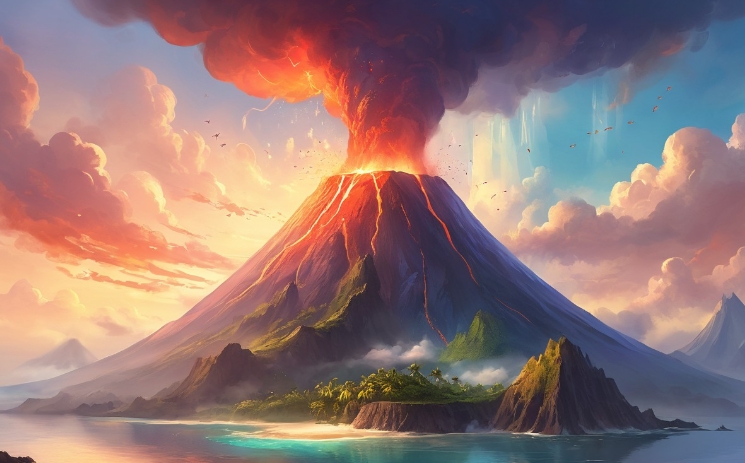Volcanic mountains are majestic natural wonders that possess a powerful and destructive force. When these mountains unleash their fury, they can wreak havoc on the surrounding areas, but they also play a vital role in shaping the landscape and providing essential resources. Let’s explore the power of volcanic mountains and the impact they have on our world.
Unpredictable Eruptions
One of the most striking aspects of volcanic mountains is their unpredictability. Eruptions can occur suddenly and with little warning, sending hot lava and ash cascading down the slopes. These explosive events can cause widespread destruction, displacing communities and disrupting ecosystems. Despite advances in monitoring technology, predicting volcanic eruptions remains a challenge, making it essential for communities living near active volcanoes to be prepared for sudden emergencies.
Shaping the Landscape
Volcanic mountains are not only destructive forces, they also play a vital role in shaping the landscape. Over time, repeated eruptions can build up towering peaks and create unique geological formations. The rich volcanic soil that is left behind is incredibly fertile, making it ideal for agriculture. In areas such as Hawaii and Iceland, volcanic mountains have created stunning landscapes that attract tourists from around the world.
Providing Resources
Volcanic mountains also provide essential resources for human civilization. The heat and pressure deep within these mountains create geothermal energy, which can be harnessed for electricity generation. The minerals and ores found in volcanic rocks are valuable resources for industry and construction. Additionally, the fertile soil surrounding volcanic mountains supports agriculture and sustains ecosystems rich in biodiversity.
Resilience and Adaptation
Despite the destructive potential of volcanic mountains, many communities have learned to adapt and thrive in their shadow. In places like Japan and Indonesia, where active volcanoes are a constant threat, people have developed strategies to mitigate the risks of living near these unpredictable giants. From building lava barriers to creating emergency evacuation plans, these communities have learned to coexist with the power of volcanic mountains.
In conclusion, volcanic mountains are awe-inspiring symbols of nature’s power and resilience. While they can unleash destructive forces, they also play a crucial role in shaping our world and providing essential resources. By understanding and respecting the power of volcanic mountains, we can learn to live in harmony with these majestic natural wonders.

